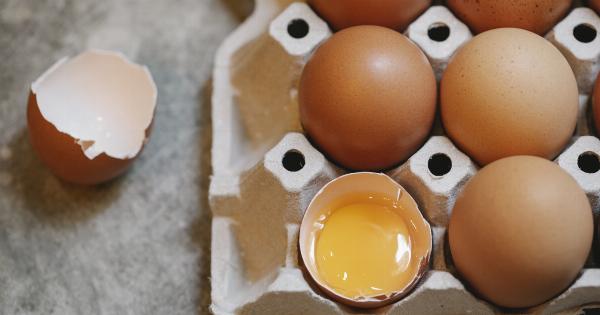Stroke is a serious medical condition that occurs when the blood supply to the brain is interrupted or reduced, leading to the death of brain cells. It can cause permanent damage to the brain or even be fatal.
While some risk factors for stroke, such as age and family history, cannot be changed, adopting a healthy lifestyle and consuming the right nutrients can significantly reduce the risk of stroke. In this ultimate guide, we will explore the top nutrients that can help in fighting against strokes.
1. Omega-3 Fatty Acids
Omega-3 fatty acids, found in fatty fish like salmon, mackerel, and sardines, have been shown to reduce the risk of stroke. These healthy fats help lower blood pressure, reduce inflammation, and improve overall heart health.
Aim for at least two servings of fish per week to ensure an adequate intake of omega-3 fatty acids.
2. Antioxidants
Antioxidants play a crucial role in protecting the body against oxidative stress and inflammation, both of which have been linked to an increased risk of stroke. Foods rich in antioxidants include berries, dark chocolate, spinach, and nuts.
Including these foods in your diet can provide a good amount of antioxidants necessary for stroke prevention.
3. Potassium
Potassium is an essential nutrient that helps regulate blood pressure and maintain heart health. High blood pressure is a major risk factor for stroke, and consuming potassium-rich foods can help lower blood pressure levels.
Bananas, avocados, sweet potatoes, and spinach are excellent sources of potassium.
4. Magnesium
Magnesium is involved in more than 300 biochemical reactions in the body, including maintaining normal heart rhythm and blood pressure. Low levels of magnesium have been associated with an increased risk of stroke.
Incorporate magnesium-rich foods like nuts, seeds, legumes, and leafy green vegetables into your diet to protect against stroke.
5. Vitamin D
Vitamin D is not only important for bone health but also plays a role in cardiovascular health. Studies have shown a positive relationship between vitamin D levels and a reduced risk of stroke.
To increase your vitamin D intake, spend time outdoors in the sun, consume fatty fish, and consider taking a vitamin D supplement if necessary.
6. Fiber
A diet high in fiber has been associated with a lower risk of stroke. Fiber aids in maintaining a healthy weight, lowering cholesterol levels, and regulating blood pressure.
Include whole grains, fruits, vegetables, legumes, and nuts in your diet to increase your fiber intake and protect against stroke.
7. Vitamin C
Vitamin C is a potent antioxidant that helps protect against stroke by reducing oxidative stress and inflammation in the body. Citrus fruits, strawberries, kiwi, and bell peppers are excellent sources of vitamin C.
8. B Vitamins
B vitamins, including folate, vitamin B6, and vitamin B12, help lower levels of homocysteine, an amino acid that has been associated with an increased risk of stroke.
Consuming foods such as leafy greens, lentils, beans, and fortified cereals can ensure an adequate intake of these important B vitamins.
9. Green Tea
Green tea is rich in antioxidants called catechins, which have been shown to have neuroprotective effects and reduce the risk of stroke. Aim for 2-3 cups of green tea per day to reap its potential benefits.
10. Garlic
Garlic has been recognized for its potential to lower blood pressure and reduce the risk of cardiovascular diseases, including stroke. Incorporate raw or cooked garlic into your meals to enjoy its stroke-fighting properties.































